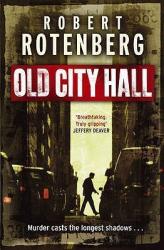
Its a morning like any other, when seventy-four-year-old Mr Gurdial Singh, former chief engineer of the India National railroad (the largest transportation company in the world), goes on his newspaper round. He is looking forward to his daily exchange with Kevin Brace, popular radio talk show host on the twelfth floor of the luxury Holmes Tower in central Toronto. But this time his customer is not waiting to greet him and when the door is eventually opened to Mr Singhs tentative knock, Mr Kevin is standing there, covered in blood. I killed her, Mr Singh, he said. I killed her. In fact these are the last words Kevin Brace will speak. In what appears to be a watertight case of the murder of his young wife, he makes no attempt to excuse or justify her killing or explain the circumstances. What follows is a complex and richly detailed investigation of the crime and a compelling examination of the process of the law. Along the way we will meet witnesses, the police detectives, the prosecutors, the defense team, the family of the victim and of the accused and we will be propelled into the very heart of their Lawrence Kelley rookie detective, but qualified lawyer, who has joined the police force partly in an attempt to solve the murder of his own brother, Ari Greene, the sophisticated tea-drinking lead investigator, son of a Holocaust survivor, who will discover in the course of the story that he is not his fathers only son, Sarah McGill, Braces first wife, who mysteriously still runs his life while making bread for her caf, Albert Fernandez, Chilean immigrant and ambitious Crown lawyer, handed his first murder to prosecute, chaotic, brilliant Nancy Parish, a defense lawyer whose client refuses to speak to her, Officer Ho, the Chinese forensic expert who may, just, have overlooked a key piece of evidence . . . What begins as a seemingly open-and-shut case soon develops into a fascinating, intricately plotted web of lies and hidden motives, punctuated by genuine heroism.
Old City Hall, Robert Rotenberg
Despite a rather shaky start in the legal profession, Robert Rotenberg's background in criminal law explains the perspective of his first novel OLD CITY HALL, most of the the book is being told from either the defence or the prosecution viewpoints.
OLD CITY HALL starts off in a decidedly disarming manner, with polite, proper and very Indian Mr Singh going about his daily job of distributing newspapers which always involves a chat with Mr Kevin in Suite 12A. On this particular morning the door is open as usual, but there is no sign of Kevin Brace. When he eventually appears in the hallway of his apartment, Mr Singh is the only person to hear him confess to killing his wife. Kevin Brace refuses to speak again. He doesn't speak to the police who investigate the crime, to his cellmate as he awaits trial, or even to his own defence counsel.
The case of Kevin Brace is the reason a number of characters all come together, although Brace himself is almost a bit player in the entire book. Partly this is because of the use of the Counsel viewpoints, partly because of Brace's decision not to speak. I have to admit I found other characters failure to deduce the reasons behind his speechlessness somewhat inexplicable at the end of the book, although this aspect is really difficult to talk about in a review without giving the game away - suffice to say, there were aspects that made clanging noises for quite a while after I finished reading.
Whilst there is a crime at the centre of the book, it does take a slightly lower profile in this book. An odd thing to conclude as ultimately the story is about the trial of that crime. Possibly this is because this isn't the sort of book where a crime is committed and a guilty party must be identified, rather this is book concentrates on "post arrest". Whilst there is definitely still some investigating going on, mostly it's not about the who, but more concentrating on the why of the crime, it's also the story of the trial and the characters involved in that trial. The crime itself is over and the investigation has a slightly different focus, and therefore intensity, once preparations for, and the trial itself, commences. Having said that, the trial even takes a slightly lower profile as well. Perhaps it's partly this difference that made OLD CITY HALL compelling, possibly it's partly because the lawyer characterisations are really very strong. The book slowly builds the story of the two counsel, aspects of their private lives and their involvement in the trial, at the same time as the facts behind the case are revealed. The lives of the perpetrator and victim are gradually drawn out, the motivation behind the death of Kevin Brace's wife is explained, and Mr Singh goes back to delivering his papers.